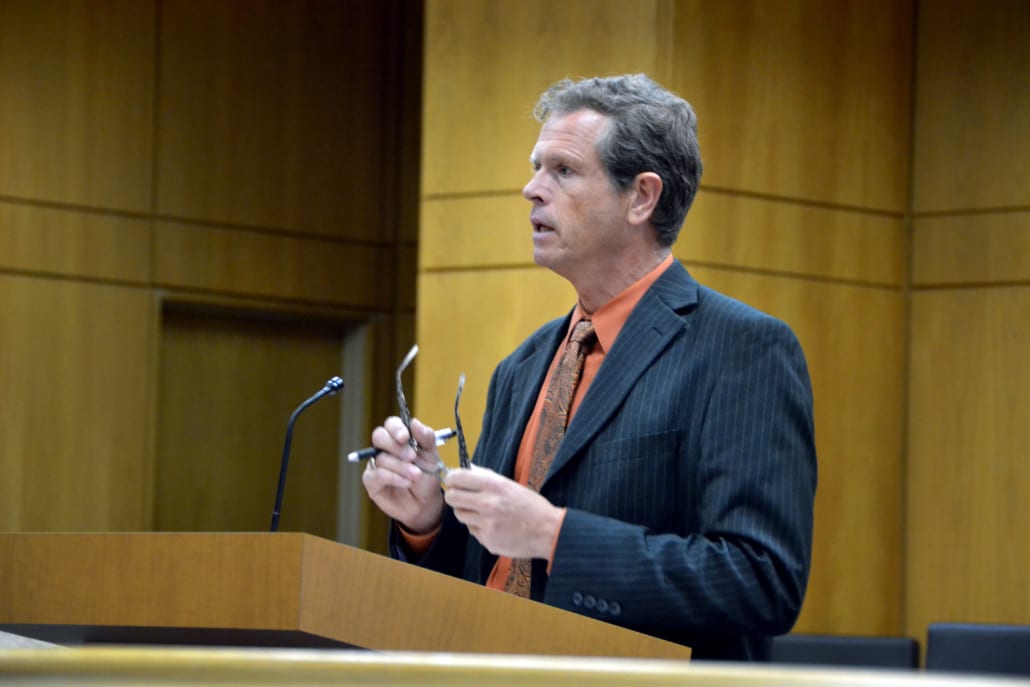JURY VERDICT: Winter Haven man convicted of home-invasion murder
Tyler Macklin was at home on the phone with his friend when two men broke into his house, robbed him, and shot him in the head.

Joseph Gomes-Brandon
After five hours of deliberation Friday, jurors found Joseph Gomes-Brandon guilty of first-degree murder, robbery with a firearm, burglary, and conspiracy to commit armed robbery. He is facing life in prison without parole and will be sentenced Dec. 18.
Gomes-Brandon’s co-defendant, Jonathan Felix, was convicted of first-degree murder in September. Felix was sentenced to life in prison.
Assistant State Attorney Bonde Johnson told jurors that Gomes-Brandon, Felix, and a third co-defendant named Dylan Kindred decided to rob Macklin on the night of May 11, 2016.
Kindred orchestrated the entire robbery, but because he’d grown up with Macklin, Gomes-Brandon and Felix planned to enter Macklin’s duplex to steal from him while Kindred was waiting outside in the getaway car.
Gomes-Brandon and Felix kicked in Macklin’s front door and demanded cash and drugs while holding him at gunpoint. Macklin was on the phone with his friend, Michael Robago, who heard the robbers order Macklin to sit on the couch.
Robago then heard Macklin tell the robbers to take $300 that was in his wallet and whatever else they wanted from his house. Robago heard a gunshot over the phone and immediately drove to Macklin’s while keeping the phone line open.
But when Robago arrived at Macklin’s house just after 11 p.m., he found the door busted in and his friend lying lifeless in the middle of the living room.
At that point in the investigation, Johnson told jurors, law enforcement did not have any leads.
A few days after Macklin’s murder, Kindred went to his grandmother’s pastor and confessed what he and his co-defendants had done. The pastor then convinced Kindred he should tell law enforcement, so Kindred turned himself in.
Johnson told jurors in closings that the evidence fell into three parts: Kindred’s testimony, corroborating evidence, and phone records.
Kindred testified at trial, outlining the day of the murder and how he was with Gomes-Brandon at Salem’s and later at a Publix ATM. He also described the clothes Gomes-Brandon wore the day of the murder.
Surveillance videos captured both Kindred and Gomes-Brandon at these locations in the clothing he’d described, confirming Kindred’s testimony
Kindred also recounted how when Gomes-Brandon and Felix kicked Macklin’s door in, he saw neighbors come outside. Kindred, who was in the getaway car, pulled up in front of Macklin’s house, and the gunshot was fired.
That portion of testimony was confirmed by the neighbors, whose description of the car rolling toward Macklin’s duplex around 11 p.m. reflected what Kindred told law enforcement.
Law enforcement found a cigarette butt in the back seat with Felix’s DNA, which further corroborated Kindred’s testimony.
Phone records also show the communication between Kindred, Gomes-Brandon, and Felix. During the times when Kindred said they were together, at Salem’s and Publix, there is no phone activity.

“They were together,” Johnson said. “They didn’t need to call or text each other.”
There was no phone activity around the time of the murder, but then they’re communicating again around midnight, Johnson told jurors.
At trial, the defense argued that there was no physical evidence placing Gomes-Brandon at the scene.
“One of the reasons Kindred’s testimony is so credible is because he came forward on his own out of guilt or emotion because there was no physical evidence linking them to the scene,” Johnson said. “The cops weren’t looking for him – they weren’t looking for any of these three at that point.”
But Kindred turned himself in and confessed to the murder anyway.
“All of the corroborating evidence and witnesses and phone records make Dylan Kindred’s testimony believable,” Johnson said.




